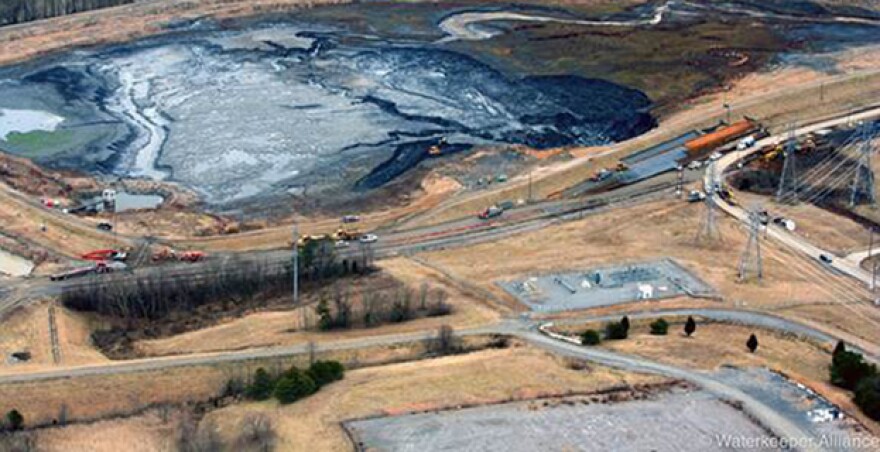At the North Carolina General Assembly, key members of the Senate will take their first vote today on a coal ash proposal. Lawmakers have been grappling all year with possible contamination from 33 coal ash ponds Duke Energy has across the state.
The problem is not new. North Carolina has been accumulating coal ash for most of the past century. Power companies burn coal to generate electricity, cool off the remaining ash with water and then pour it into ponds and keep it there.
This happens throughout the country, but it came to the attention of North Carolina lawmakers last February, when tons of ash leaked from a pond and covered 70 miles of the Dan River in gray sludge.
“The goal here is to get North Carolina out of the coal ash business," says Sen. Tom Apodaca, (R-Hendersonville). As chairman of the Senate's rules committee, Apodaca is an influential member of his chamber, and he happens to represent a district near Asheville where Duke Energy, the state’s largest utility company, has some of these coal ash ponds.
Details Of The Senate's New Coal Ash Plan
"The big picture of our proposal is that it dries out and closes each pond," he said Monday, during a presentation of a 44-page bill proposal. "It stops the disposal of wet coal ash and requires future coal ash to be put to a beneficial use or to a lined facility.”
The plan would require Duke to close all 33 of its ponds within 15 years. And, in the short term, the company couldn’t pass the costs onto customers.
At some ponds, Duke would have to drain the water, cover the ash with dirt, and monitor to make sure there are no leaks. At higher risk ponds, Duke would have to dig out all of the ash, and either move it to dry storage or find a productive use for it ... like selling it for concrete.
Reaction To The Proposal
Members of the Senate Natural Resources Committee liked the plan, for the most part. Senator Fletcher Hartsell (R-Conchord) says there should be an incentive for selling and buying the ash.
"For the user: Roadways, highways, that sort of things," Fletcher says. "And also, the entity that produces the waste to begin with because they have to look at what's the best cost alternative: Putting it in a landfill or using it in some kind of structural fill."
For some Democrats and environmental observers, the plan does not do enough.
"It's not quite as ambitious as I think the Senate was looking for, but we look forward to working with them to make it even stronger," says Dustin Chicurel-Bayard, spokesman for the North Carolina Sierra Club. "The Senate promised a home run. I think they hit a good single on this one, so there's still time to circle the bases."
Chicurel-Bayard says the bill needs more enforcement mechanisms. Some environmentalists say the only way to guarantee coal ash won’t get into public water ways is to remove it from all of the ponds.
For Duke Energy, the Senate’s existing proposal is already challenging.
"The timeline is very aggressive and that's one of our biggest challenges we're looking at," says spokesman Jeff Brooks. "Our largest coal plant, we had estimated in our engineering studies would take up to 30 years to be able to move the coal ash at that site. This plan says 15 years for all of your sites. So it's an incredibly aggressive timeline and it's going to present some real operational challenges for us."
What’s for sure is that, in the vernacular of the Senate, this is a piece of legislation that is moving slowly. Two days is all they spent debating the entire $21 billion budget for the state. Apodaca says that on this one, they might spend all week.








